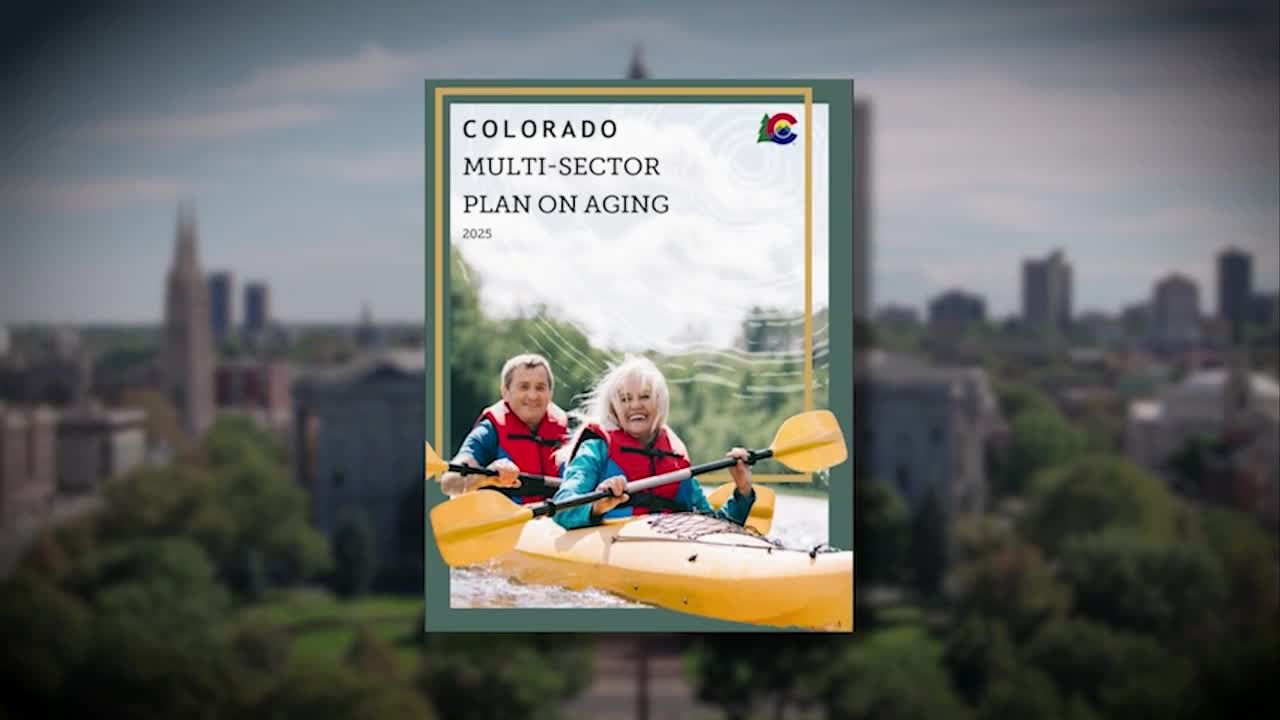DENVER — With Colorado’s population of older adults projected to surge nearly 30% by 2035, advocates gathered Friday at the State Capitol to discuss the biggest problems facing the fastest growing demographic in our state.
The rally came as the Colorado Fiscal Institute released its latest “Cost of Aging in Colorado" report, which warns of rising demand — and inadequate funding — for programs like home-delivered meals, transportation and in-home care. In 2023, more than 50,000 older Coloradans relied on such services, most of which are funded through state and federal dollars.
“We’re going to have a billion-dollar shortfall in ’25, probably about a billion-dollar shortfall in ’26, and they’re [state lawmakers] going to have to look at the biggest line items on their budget, including Medicaid,” said Emily Peterson, executive director of PACE Programs.
Peterson said the financial uncertainty is rippling through senior communities, leaving many hesitant to make life changes — even for the better — out of fear they could lose benefits.
“One of the things that hurts me the most is when a senior tells me, ‘I’m afraid to make a change, even if it’s a change for the better because of uncertainty. They’re not sure if their government benefit will be there next year,’” Peterson said.
Colorado receives $22 million annually in federal funding for older adult programs, but advocates say that amount falls far short of meeting the growing need.

“There’s no way [funding] is keeping up,” Peterson said. “It’s going to call on a lot of private individuals, foundations, businesses even to help with some of that, because the government’s never going to be able to keep up with it.”
Advocates like Peterson and Steve Olguin, executive director of Bright Leaf Inc., say collaboration among agencies is key.
“If we are doing our own thing, I mean, we’re never going to be able to make things happen,” Olguin said. “If we’re not all together and we’re trying to make this push, I don’t think anything’s going to get done.”
Peterson agreed, emphasizing that “relationships are everything” when it comes to creating trusted spaces for seniors. “Let’s not leave our vulnerable seniors in the shadows when they have earned the right to live in the sunshine,” she said.
The state has unveiled a plan this year to address aging-related challenges. Advocates hope it will lead to urgent, meaningful changes.
“This might be the opportunity to make it work. I can’t really say, but I do know that more and more people are getting engaged,” said Bob Bocker, founder and president of AgeWise Colorado. “It’s really important for people to pay attention to what’s going on and notice your neighbors.”
As Colorado’s senior population grows, advocates say visibility will be critical.
“Once you have gray hair, you often become invisible,” Peterson said. “Raising the visibility is key.”






